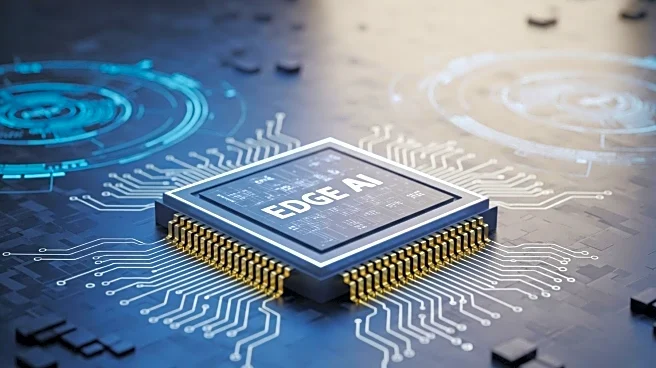What's Happening?
EMASS, a subsidiary of Nanoveu Ltd, has launched the ECS-DoT, an advanced semiconductor chip designed for edge AI applications. This system-on-chip (SoC) offers ultra-low-power AI processing capabilities, enabling devices to perform high-performance AI tasks locally without relying on cloud-based computation. The ECS-DoT is optimized for power and space-constrained applications, such as wearables and drones, by incorporating four megabytes of on-board SRAM. This design significantly reduces latency and power consumption, allowing for always-on intelligence in various devices. EMASS claims that the ECS-DoT operates up to 93% faster and consumes 90% less energy compared to leading competitors, making it a promising solution for the extreme edge of the network.
Why It's Important?
The introduction of the ECS-DoT chip by EMASS represents a significant advancement in the field of edge computing and AI. By enabling devices to process data locally, the chip reduces the need for constant cloud connectivity, which can lead to faster response times and lower energy consumption. This development is particularly important for industries relying on IoT devices, such as healthcare, industrial IoT, and consumer electronics, where power efficiency and real-time data processing are critical. The ECS-DoT's ability to support multimodal sensor fusion on-device could lead to more sophisticated and autonomous systems, potentially transforming how industries operate and innovate.
What's Next?
As EMASS brings the ECS-DoT to market, it is likely to attract interest from original equipment manufacturers (OEMs) looking to enhance their edge AI capabilities. The chip's energy efficiency and performance could lead to its adoption in a wide range of applications, from medical wearables to industrial monitoring systems. EMASS's focus on power efficiency aligns with the growing demand for sustainable and efficient technology solutions, which could drive further innovation and competition in the semiconductor industry.










